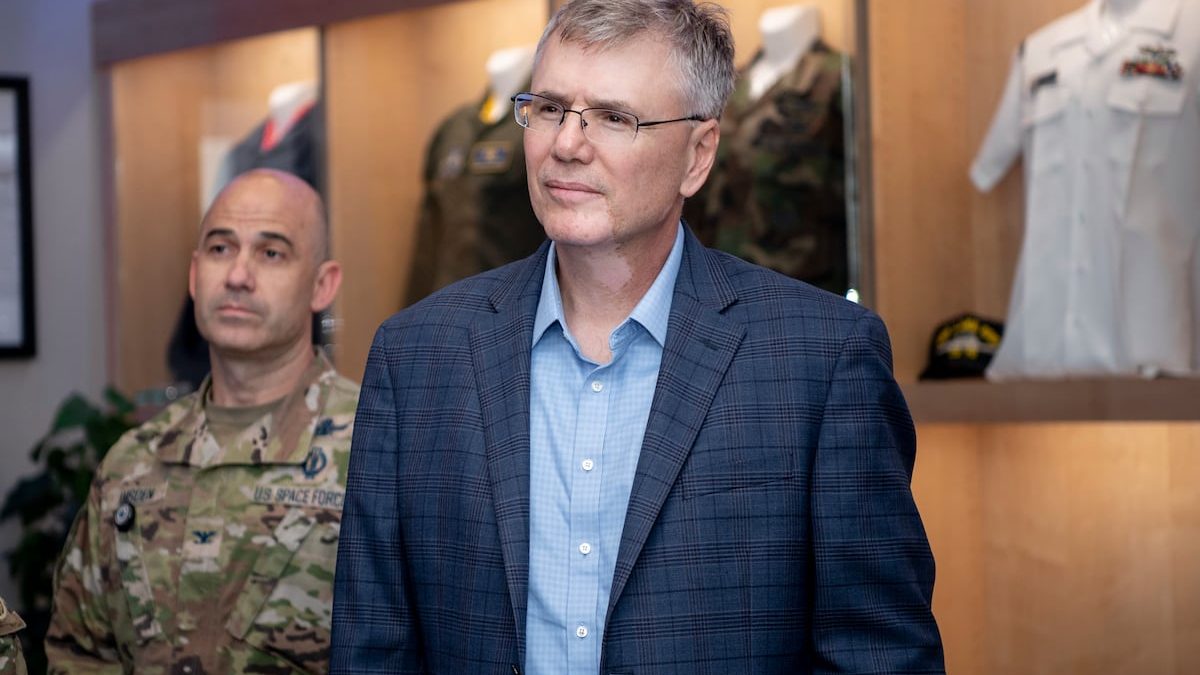President-elect Donald Trump said Thursday he’s tapping Troy Meink, second in command at the National Reconnaissance Office, to be secretary of the Air Force.
Meink began his career as a KC-135 tanker navigator in 1988. He went on to hold a variety of roles across the Air Force’s space enterprise, serving as a chief technical advisor to the Air Force Research Laboratory and later the deputy undersecretary of the Air Force for space.
As principal director of the NRO, a position he’s held since 2020, Meink oversees the spy agency’s day-to-day operations. He’s played a key role in discussions around how to collaborate with the Space Force to provide ground target tracking capabilities from space, as well as the NRO’s efforts to leverage space-based commercial imagery services and launch a proliferated satellite constellation.
If confirmed, Meink will lead both the Air Force and the Space Force. His background in space-system acquisition and development could drive more funding toward Space Force priorities as the service looks to double or triple its budget in the coming years to meet an expanding mission set.
His nomination comes as the Air Force faces a significant decision about how to fund its current and future portfolio of fighter aircraft, as well as its nuclear modernization programs. Last year, outgoing Air Force Secretary Frank Kendall paused the service’s competitive Next-Generation Air Dominance Program — a major effort to replace the F-22 stealth fighter — pointing to concerns about the program’s cost and requirements.
The intent of the pause was to give Air Force leadership time to determine whether — and how — to reshape the program. Kendall ultimately punted that decision to his successor.
Meink is also likely to face decisions on what role unmanned aircraft will play across the Air Force portfolio. Trump adviser Elon Musk has suggested the service should abandon efforts to build a crewed fighter to replace the F-35, advocating instead for a heavier focus on drones.
Speaking earlier this week at the Center for Strategic and International Studies, Kendall said he doesn’t think the Air Force is culturally ready to make that shift.
“The culture and history and the legacy of the Air Force, which I have been steeped in … for my whole life, really, is about the role of the pilot,” Kendall said. “Letting go, to some degree, of that, is an incredibly difficult emotional thing for people to do.”
Courtney Albon is C4ISRNET’s space and emerging technology reporter. She has covered the U.S. military since 2012, with a focus on the Air Force and Space Force. She has reported on some of the Defense Department’s most significant acquisition, budget and policy challenges.
Read the full article here


